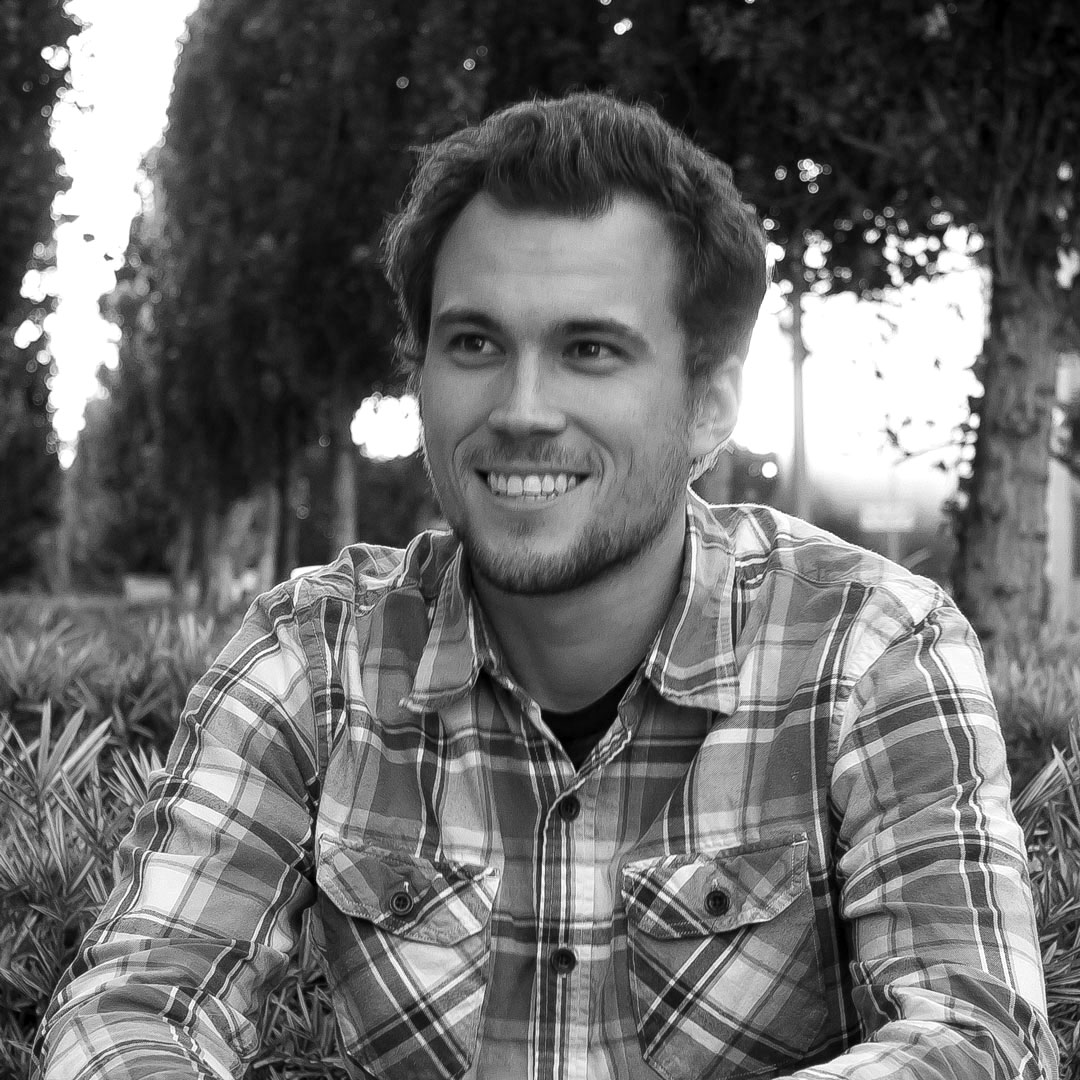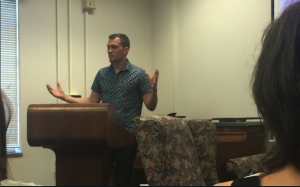
On Thursday, September 15, nearly every seat of the Bachelor Reading room was eagerly filled to hear the insights of a recent Miami grad. Tom Dever earned his BA in Creative Writing here in Oxford before moving to California in pursuit of his MFA from the University of California and launching a successful career in the film industry. He walked up to the podium with a smile, sharing his excitement to be back on campus.

Dever, whose talk focused mainly on the secrets and tips that he’s discovered in his time as an independent, “microbudget” filmmaker, began by telling a story about his start in Hollywood. Frustrated with a lack of time to pursue his own passions and ideas while working for established production companies, he made the decision to pursue independent work.
“There are a ton of resources for making a film, it’s actually easier now than ever before,” Dever says about the route of independent production. Then, acknowledging the intimidation that deters many from the process: “what is the one thing keeping people from trying to make their own films? Money.”
Money is the biggest intimidation factor. However, if you know the right ways to budget out a film, the independent production route can be extremely rewarding. As Dever attests, making your own film allows you to carry out your vision as a writer to its maximum extent.
The rest of the talk was then devoted to revealing some of the wisdom and tricks that Dever has discovered in his leap down the rabbit hole of producing films on a “shoestring” budget.
The majority of his tips centered around what a screenwriter can do before hiring even a single crew member to reduce the potential costs of production—this includes acts as simple as setting scenes in a limited number of locations or limiting the number of actors who have talking parts. Other advice came from Dever’s personal experience in the field, such as the suggestion to avoid writing too much movement into a scene: the more a character moves, the more cameras and set-up—and thus money—are required to follow their actions around the set.
The biggest statement of the afternoon, capturing the spirit of Dever’s advice, was simple. What costs the big bucks is not the price of hiring a crew or a cast or renting equipment. All of these are in high supply and relatively cheap on a per-day basis. What costs money is retaining these production assets for long amounts of time over the course of a shoot. Dever verified that time is definitely money in the film business.
In the end, he left his audience with a few final pieces of advice.
“Work with people you trust, not necessarily people you like,” he says, earning laughs with his comments about how true this mantra becomes in the foreign land of LA. A film is made by the hard work of people you can tolerate, not the lazy work of your friends.
The next statement earned a laugh and a few head nods of agreement: “Never underestimate what free food will get you.” Dever swears that there are many very talented actors and crews who will work for free if the food is good enough on set.
Finally, Dever administered the most stirring advice of the afternoon: “Pick which hill to die on.” As a writer, it is easy to become attached to your original vision for your screenplay, but in reality, many little aspects will have to change in order to make the paper script into a filmic reality. It is important to pick only the most essential elements to fight for and to learn to let go of the unnecessary.
Dever ended the hour with a statement that surely struck true for many of the creatively driven attendees in the audience. Yes, all of these tips might help to alleviate some of the fear associated with plunging into the creative yet uncertain industry of film, but fear will persist when there are so many unknowns. Dever’s final words of encouragement resonated as the room applauded: “But what’s the alternative? You’re artists; you’re writers. Would you rather have just a day job?”
Anna Jankovsky
English Literature ‘19
English Department Ambassador

